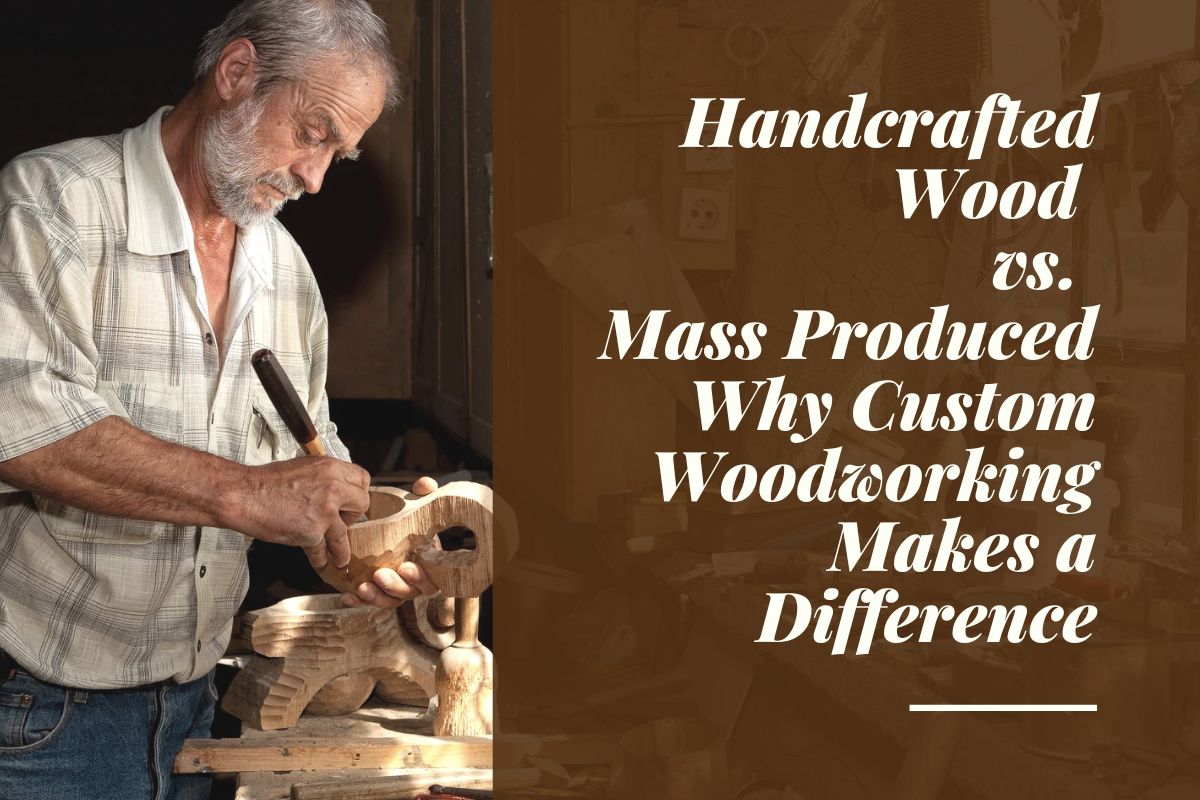Blog
Handcrafted Wood vs. Mass-Produced: Why Custom Woodworking Makes a Difference
In today’s world of mass manufacturing, it’s easy to overlook the charm, value, and lasting quality of handcrafted wood products. While mass-produced items may offer convenience and lower prices, they often fall short when it comes to craftsmanship, uniqueness, and sustainability.
If you’re considering adding wooden products to your home or purchasing gifts, understanding the key differences between handcrafted wood and mass-produced alternatives can help you make a more meaningful choice.
1. Unmatched Craftsmanship
Handcrafted wood products are made by skilled artisans who dedicate time and precision to every detail. From selecting the right piece of wood to carving, sanding, and finishing, each item is made with care and passion. Mass-produced pieces, by contrast, are created by machines, often in bulk, with little regard for individual quality.
2. Unique and One-of-a-Kind Designs
Each handcrafted piece tells a story. The natural grain, knots, and texture of wood vary from item to item, making every product completely unique. Mass production, however, results in identical copies—lacking personality or individuality.
3. Superior Material Selection
Artisans often handpick high-quality hardwoods like walnut, oak, olive, or cherry, chosen for durability and beauty. In contrast, many mass-produced wooden products are made with cheap plywood or MDF (medium-density fiberboard), which is less durable and prone to damage over time.
4. Customization and Personalization
One of the biggest advantages of handcrafted woodworking is the ability to personalize. Whether you want a cutting board engraved with a family name, or a serving tray with a special date, artisans can tailor the product to your needs. With mass-produced products, customization is either limited or unavailable.
5. Longevity and Durability
Thanks to quality materials and traditional joinery techniques, handcrafted wood products last for years—sometimes even generations. They can withstand daily use and develop a beautiful patina over time. On the other hand, factory-made items are designed for speed and cost-efficiency, which often compromises long-term durability.
6. Ethical and Sustainable Practices
Many independent woodworkers use sustainable wood sources and eco-friendly finishes. Mass production, on the other hand, often prioritizes volume over sustainability, contributing to deforestation, energy waste, and environmental damage.
7. Emotional and Artistic Value
Handcrafted wood items are more than just functional—they’re art. Knowing that a person crafted your item with care adds emotional value. Whether it’s a family heirloom, a wedding gift, or a décor piece, it becomes part of your story.
8. Support for Local Artisans and Small Businesses
When you buy handcrafted wood, you’re directly supporting independent makers and small businesses. It helps preserve traditional woodworking techniques and keeps the creative economy alive.
Final Thoughts
In the debate of handcrafted wood vs. mass-produced, the difference is clear. If you’re looking for beauty, quality, and a product that truly reflects care and craftsmanship, handmade wood products are the better choice. They bring character, warmth, and a deeper meaning to your home or your gift-giving.
So next time you’re shopping for something special, skip the factory line—and choose something crafted by hand, with heart.

